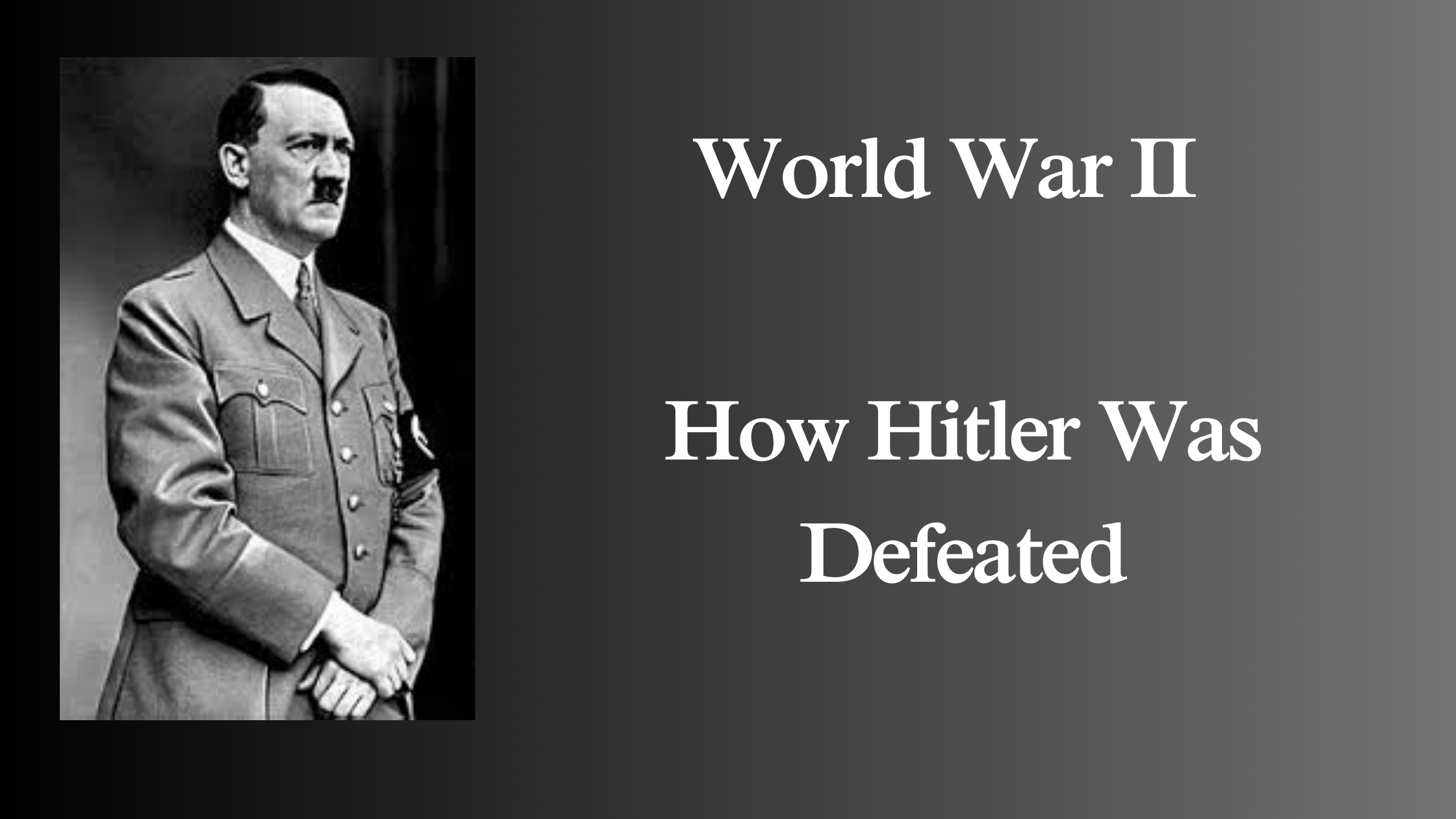The Complete Story of World War II: How Hitler Was Defeated
In July 1940, Europe was in turmoil as Hitler’s Germany had invaded and occupied several countries, leaving Britain as the last European nation opposing German aggression. As the world watched, Hitler’s bid for dominance seemed unstoppable. However, a series of events unfolded that eventually led to his defeat.

The Battle of Britain: Defying the Odds
Winston Churchill’s defiant stance against Hitler’s proposed peace treaty rallied Britain to stand firm against the German invasion. The iconic “We shall never SURRENDER!” speech marked a turning point, leading to the Battle of Britain. Despite being outnumbered, the British Royal Air Force’s resilience and strategic defense thwarted Hitler’s attempts to invade the UK through Operation Sea Lion.
The Turning Point: Hitler’s Fatal Mistake
Hitler’s decision to shift focus from Britain to the Soviet Union proved to be a critical error. His invasion of the USSR led to a series of losses and setbacks for the German forces. The Soviet Union, bolstered by support from Allied Powers, including the UK and the US, resisted the German advance and eventually turned the tide against Hitler.
Allies Unite and Victories Emerge
Throughout 1942 and 1943, Allied Forces made significant gains on multiple fronts. The D-Day invasion in June 1944 marked a pivotal moment in the war as British, American, and Canadian troops landed in Normandy to liberate France. Concurrently, the Soviet Union’s successful defense at Stalingrad and the Italian uprising against Mussolini further weakened Hitler’s forces.
The Final Days and Aftermath
As Allied Forces continued to advance, Hitler’s grip on power began to crumble. The Battle of Bulge and devastating bombings on German cities paved the way for Germany’s surrender in May 1945. Hitler’s death and the subsequent division of German territories marked the end of WWII in Europe. The establishment of the United Nations and other global institutions aimed to prevent future conflicts.
In conclusion, World War II’s conclusion reshaped the geopolitical landscape of Europe and laid the foundation for post-war cooperation and peace initiatives. The Allies’ collective efforts and the resilience of nations like Britain and the Soviet Union played a crucial role in defeating Hitler’s regime and ultimately bringing an end to one of the darkest chapters in human history.


